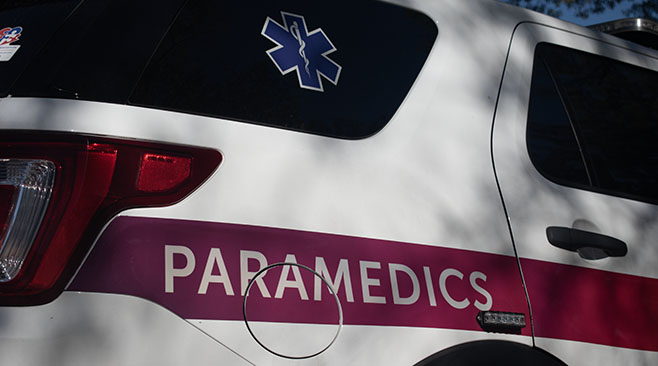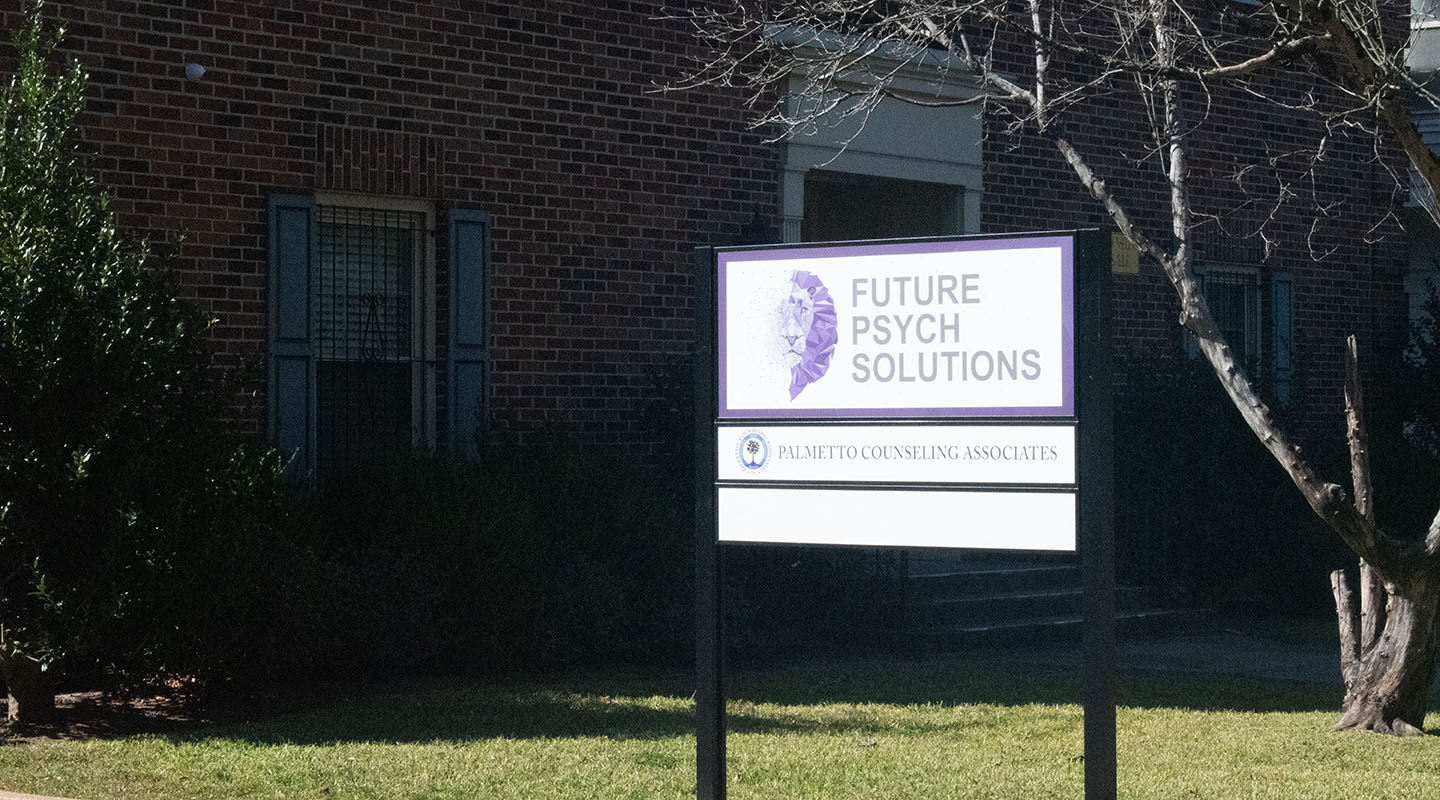A Prisma Health paramedic SUV sits on standby in a parking lot of the Prisma Health Richland Hospital campus. (Photos by Win Hammond/Carolina News and Reporter)
Lawyers representing patients who were given ketamine and died blame the drug.
But South Carolina EMS workers say the drug is not the cause.
Ketamine is a reliable anesthetic with a reputation for hallucinogenic recreational uses, advocates say. But in 2019, it killed Randy Botten after it was administered by Charleston County EMS workers, according to a federal lawsuit reported on by Charleston Post and Courier.
Some state lawmakers want ketamine injections banned, saying some patients have extreme reactions to the drug. EMS workers say banning ketamine would take an excellent tool away from paramedics.
Lawmakers later filed two bills to ban paramedics from injecting criminal suspects with ketamine to restrain them. But the bills didn’t get a vote and expired last year.
At least one lawmaker said she would to see the bills introduced again.
Rep. Pat Henegan, D-Marlboro, maintains that only doctors should inject patients with a drug. If a similar bill would be presented in the upcoming legislative session, she would support it, she said.
Former Rep. Jerry Govan, D-Orangeburg, was a co-sponsor of the bills.
One specified that paramedics who used the drug on any patient would be charged with a misdemeanor and serve up to three years in prison.
“By injecting these different kinds of drugs, you don’t know whether they have pre-existing medical conditions,” Govan said.
Henegan said she doesn’t think anyone but a doctor should be injecting patients. Only doctors would know if a patient has an intolerance to a medicine, she said.
“That’s true of all medications,” said Aaron Dix, treasurer for the South Carolina EMS Association.
Casualties suffered from EMS responses that involved ketamine injection happen as a result of resistance and many other factors, Dix said. A ketamine allergy, though, is uncommon.
Paramedics care for people in chaotic environments, whereas doctors work in a more controlled environment, Dix said. It’s much different to care for a potentially violent patient on the street, for example, than in an operating room or a physician’s office, he said.
Dix said he worries about a future where ambulances aren’t equipped with ketamine and EMS workers have to rely on inferior medicine.
Ketamine is one of the most commonly used medications in the world, said Dr. Don Dubose, a psychiatrist with Future Psych Solutions.
Ketamine, a PCP derivative, has its roots in the Vietnam War. Injections make patients breathe faster and their heart rate increase, Dubose said. Other anesthetics cause patients to breathe more slowly and their blood pressure to drop, he said.
“If you were shot and you’re bleeding out, you want your heart to beat harder, you want to be able to breathe more,” Dubose said. “So ketamine is perfect for that.”
The drug also is becoming an increasingly popular therapeutic medication.
Dubose said ketamine is a rapid anti-depressant. It can help with anxiety symptoms, heal connections in the brain and resolve depressive symptoms.
S.C. lawmakers became interested in the drug’s application after the Charleston County coroner ruled Botten’s death a homicide, citing “restraint asphyxia and the toxic effects of ketamine.”
Similarly, Elijah McClain, who would become a rallying cry for Black Lives Matters protests across the country, was killed when Colorado police officers held him down and paramedics gave him ketamine, also in 2019.
Attorneys for two officers involved alleged that the ketamine, not the officers’ use of force, was the cause of McClain’s death.
S.C. paramedics are skeptical of ketamine’s alleged role in both cases.
Dix said that too much of anything can cause death. Kids can die from drinking too much water, he said.



